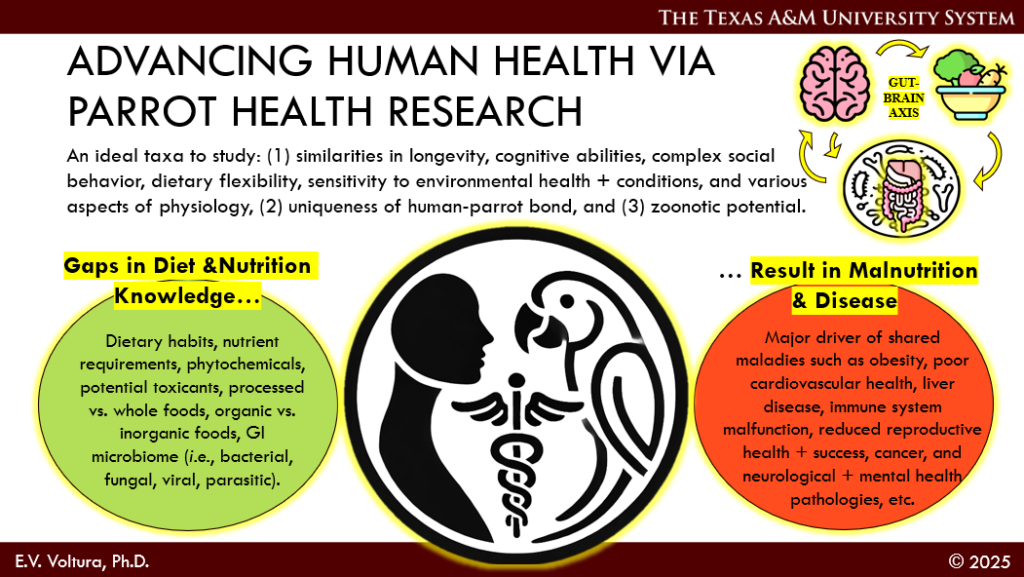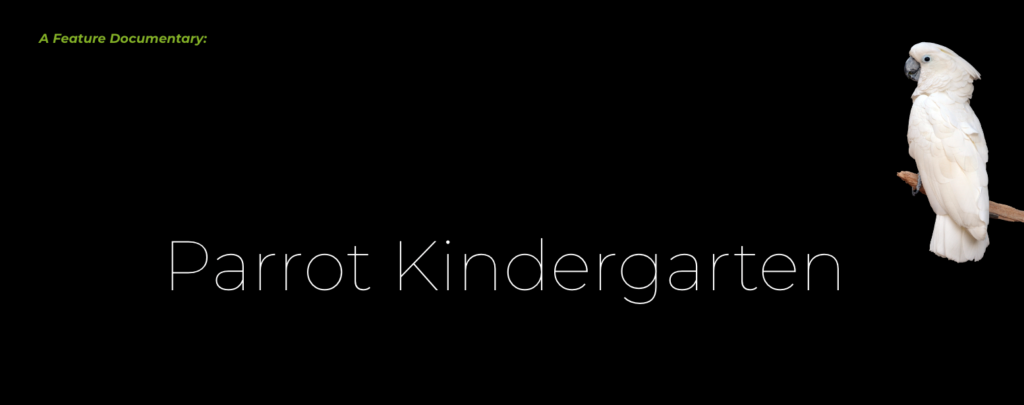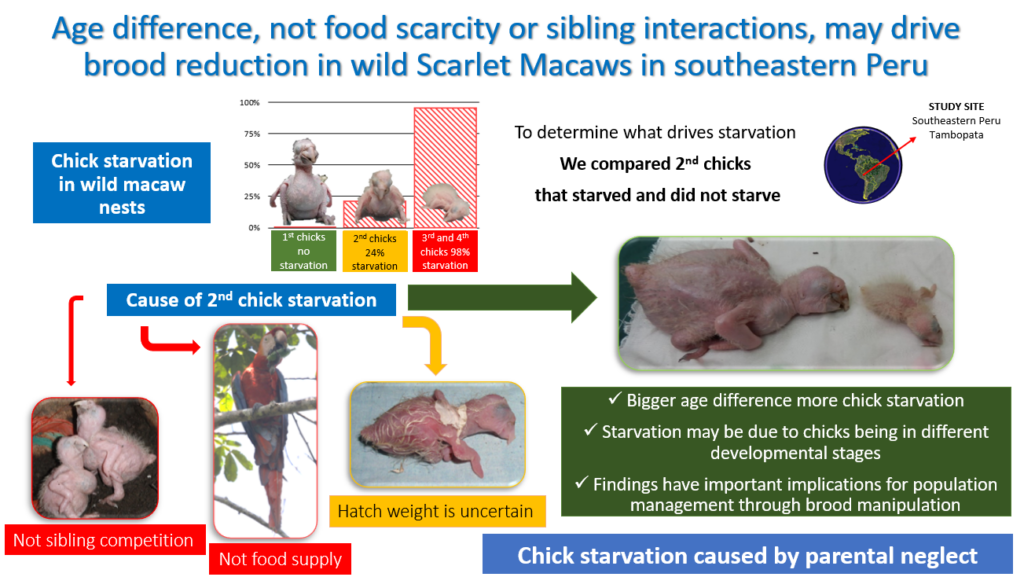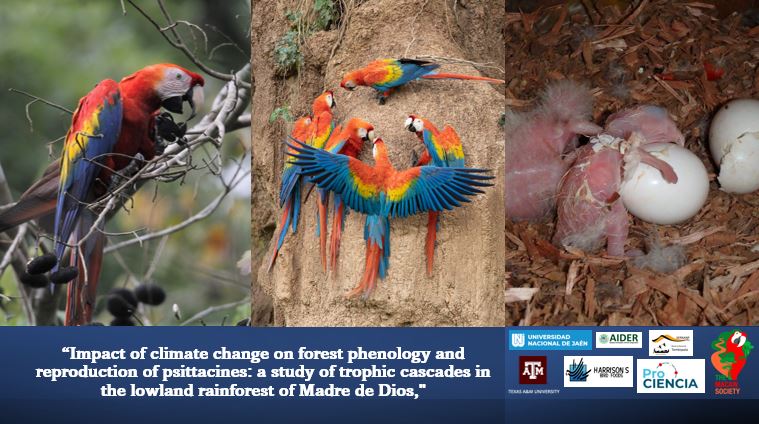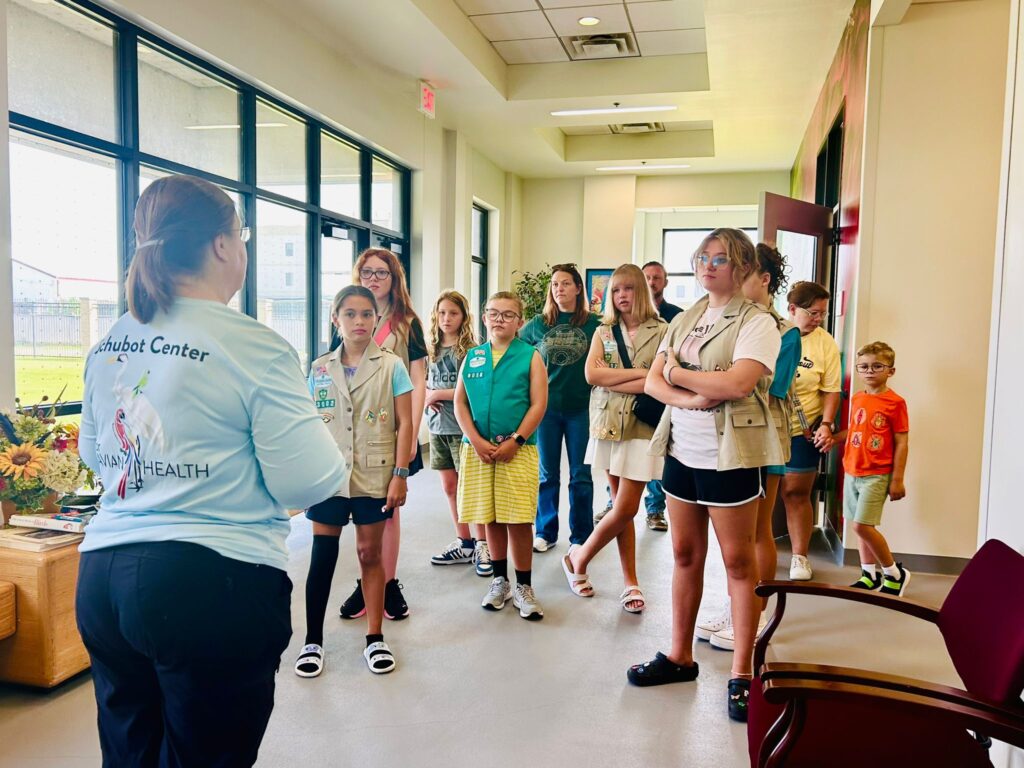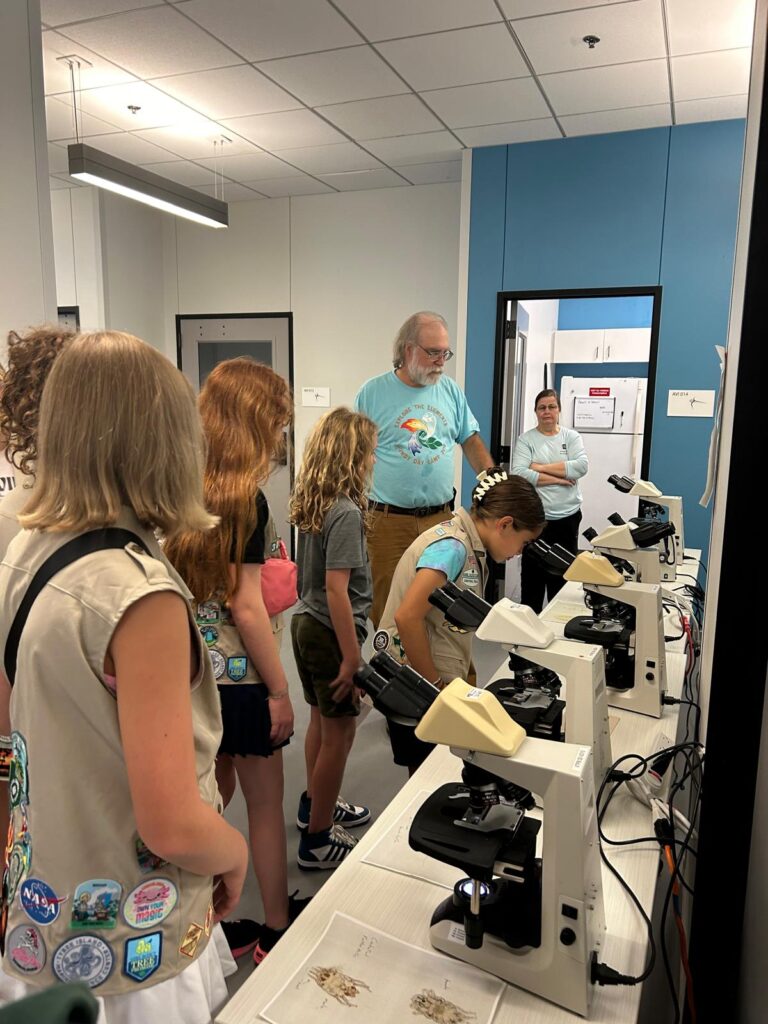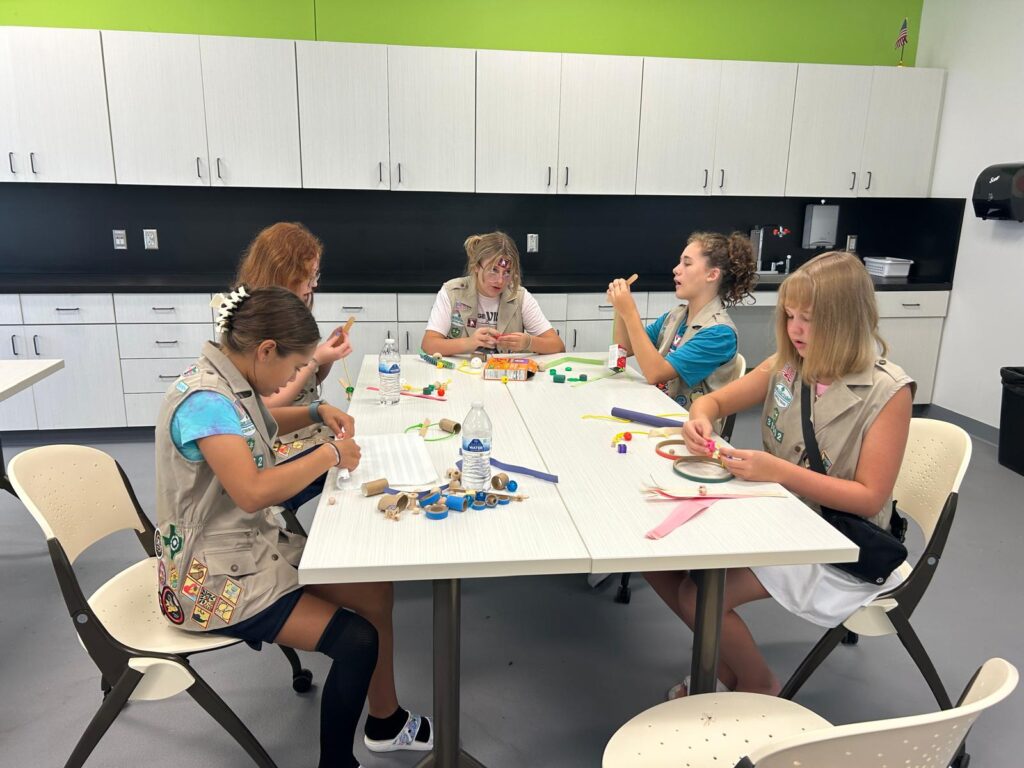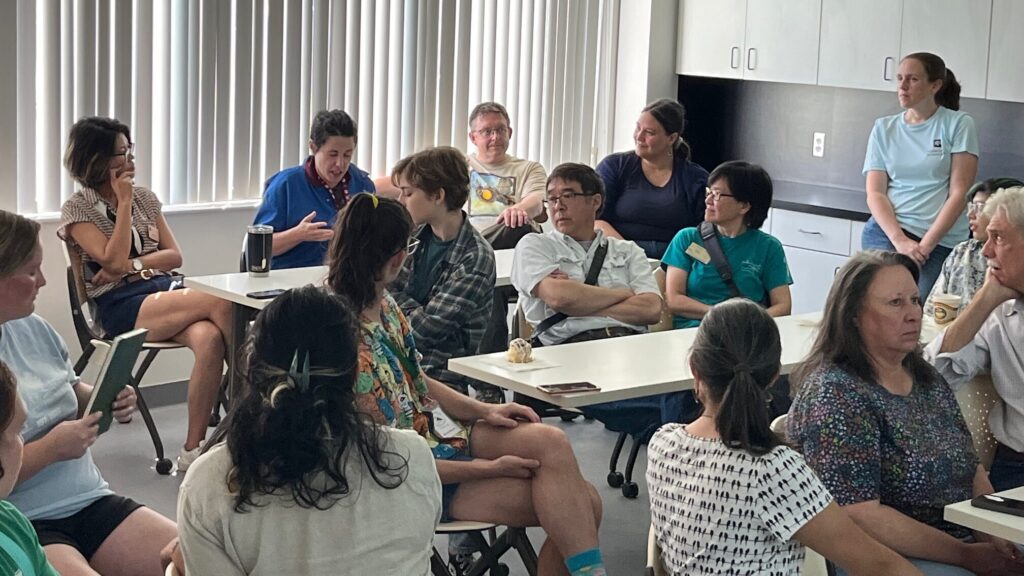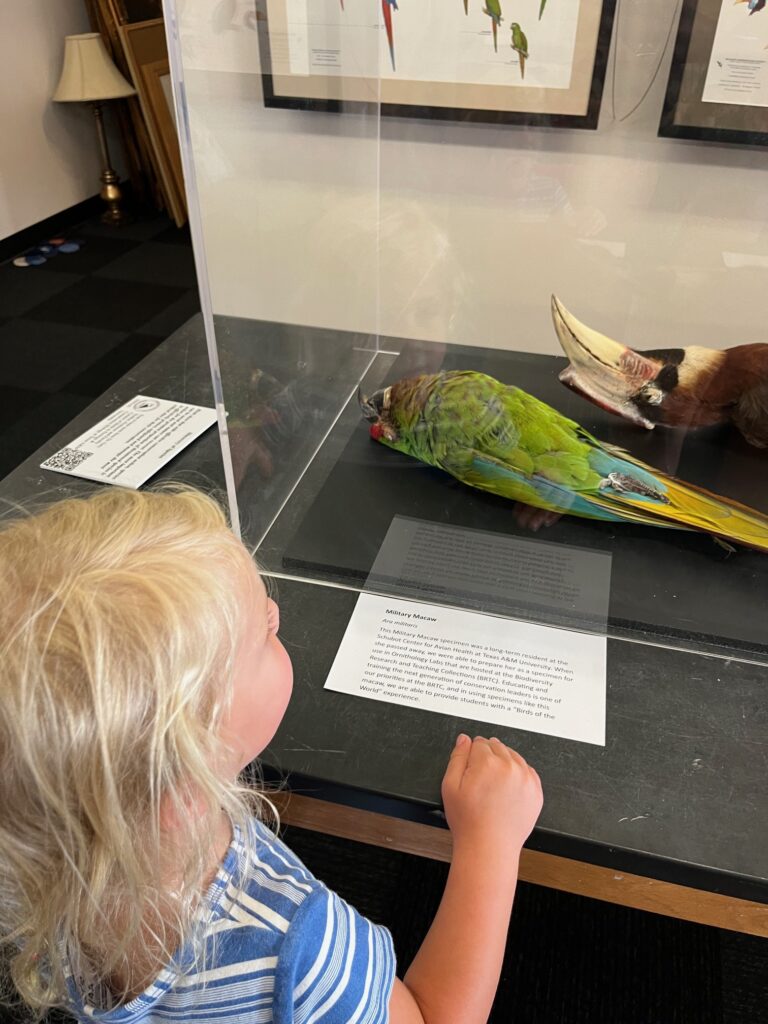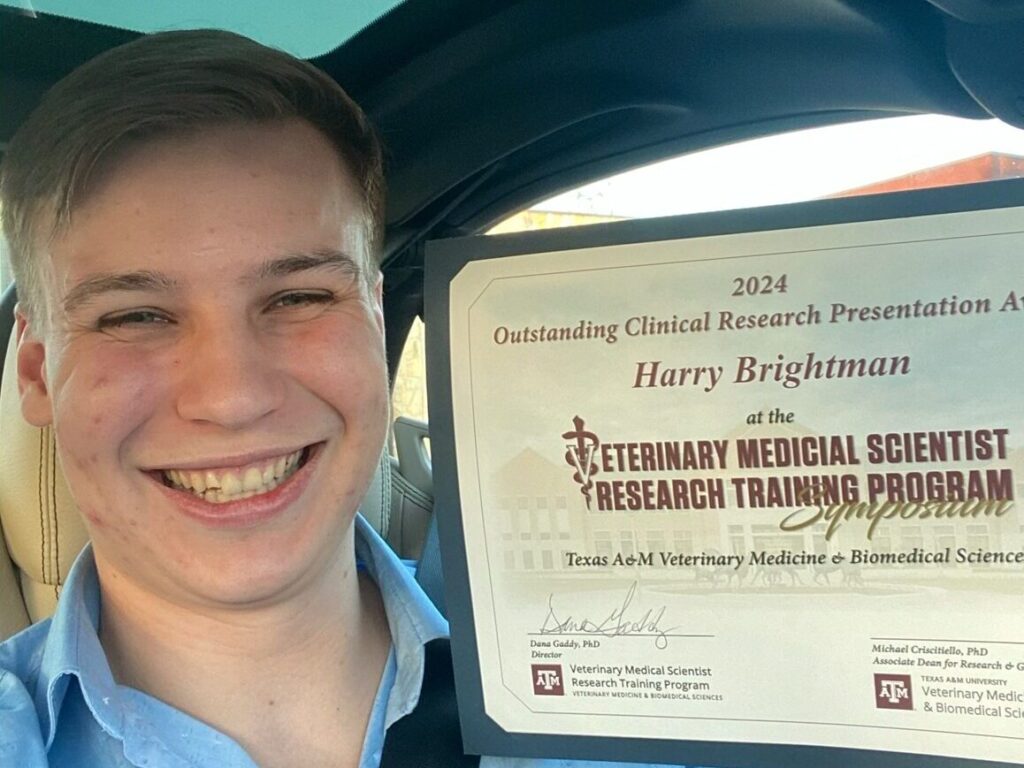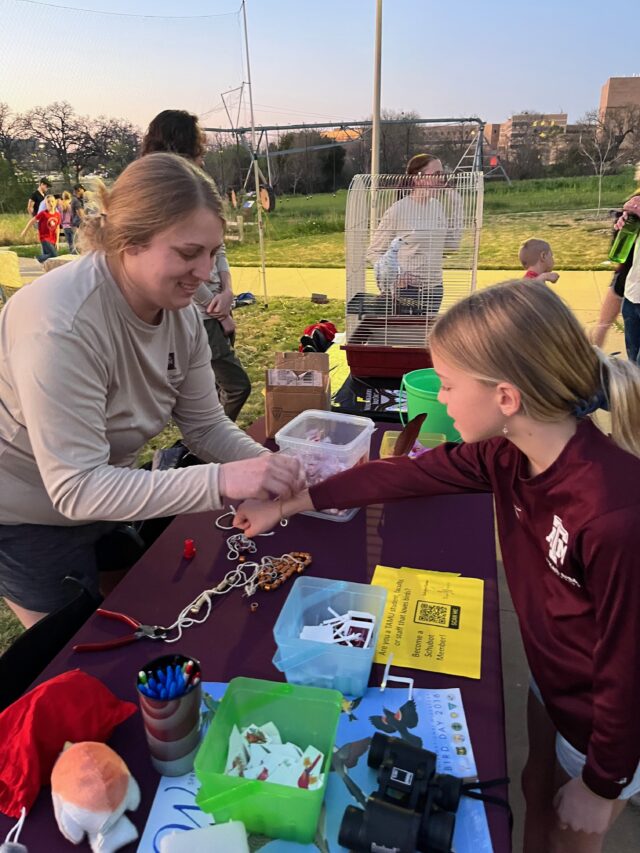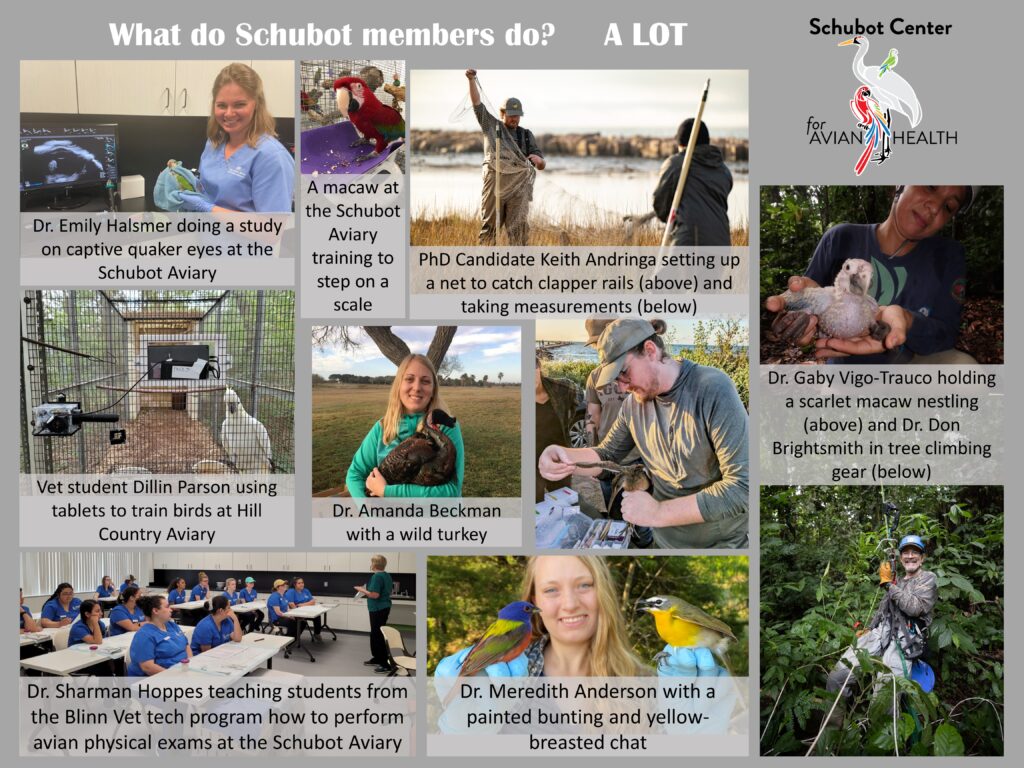We’re thrilled to announce that Dr. Brightsmith’s team has been awarded a prestigious grant from ProCiencia PERU, a highly competitive program by the Peruvian government. Out of nearly 500 proposals, only 79 were funded this year, and his team was honored to be among them!
ProCiencia, the equivalent of the US National Science Foundation in Peru, is dedicated to advancing science, technology, and innovation to promote sustainable development and enhance Peru’s global competitiveness.
Their research project, titled “Impact of Climate Change on Forest Phenology and Psittacine Reproduction: A Study of Trophic Cascades in Madre de Dios’ Lowland Rainforest,” will explore how shifts in climate influence the flowering and fruiting cycles of tropical forests and their effects on parrots, specifically Psittaciformes, over the next three years. This project will be conducted in partnership with the peruvian university Universidad Nacional de Jaen and AIDER (Asociación para la Investigación y Desarrollo Integral), with crucial funding and support from Dr. Brightsmith’s team at the Schubot Center, which has led impactful parrot research in the lowland Amazon rainforest since 1999.
With ProCiencia’s support, Dr. Brightsmith’s team is excited to launch this next phase of research. We look forward to sharing their progress and findings as we deepen our understanding of climate change’s impact on tropical ecosystems and the magnificent parrots that inhabit them.
Congratulations to Dr. Brightsmith and the entire team for securing this significant grant! Your dedication to advancing parrot conservation and climate research continues to inspire us all.
Understanding the Impact of Climate Change on Rainforest Ecosystems
The Amazon rainforest, known for its unparalleled biodiversity, is increasingly vulnerable to climate change. Studies have shown that altered rainfall patterns, rising temperatures, and increased atmospheric CO2 levels have led to reduced tree growth and shifts in the timing and abundance of flowering and fruiting events (Corlett & Lafrankie 1998; Feeley et al. 2020). These disruptions can trigger cascading effects throughout the ecosystem, particularly impacting frugivores—species that rely on fruit as a primary food source.
Among these frugivores, parrots and macaws play essential roles, not only as seed predators but also as key seed dispersers. Their breeding season often coincides with peaks in fruit availability, which are narrowing due to climate-induced shifts in phenology. This research aims to document these changes and explore how parrots adapt, or struggle to adapt, to increasingly scarce food resources. The findings could be vital for predicting how other tropical frugivores may respond to ongoing climate shifts.
A Groundbreaking Approach to Climate and Biodiversity Research
This project represents one of the few studies specifically examining how climate impacts the phenology of tropical forests in the Neotropics and its effects on frugivorous bird populations. Through detailed tracking and analysis, we aim to monitor the changes in forest fruiting patterns and parrot reproduction cycles. Research like this is critical in understanding how tropical ecosystems function under environmental stressors and developing conservation strategies to mitigate these impacts.
